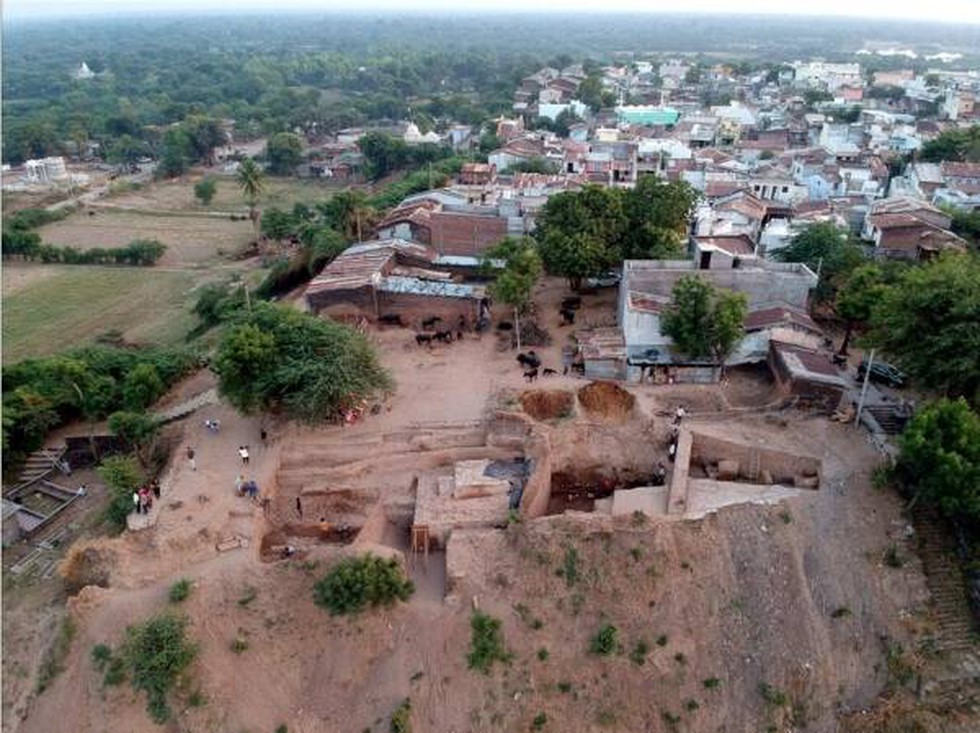About Vadnagar:
- Vadnagar, a city known by names like Vridhanagar, Anandapur, Anantapur and Nagar, is said to have been inhabited uninterruptedly for over 2,700 years.
- The town represents a continuously evolving historic urban landscape/area which played a major role in the hinterland trade network of Western India.
- The continuity of the historic town proves its resilience and outstanding universal value unlike the sites like Harappa and Kalibangan, (Rajasthan) which were abandoned eventually.
Significance:
- The town’s fortifications, arched gateways (toranas), temples, wells, residential structures (kothis) and excavated sites like Buddhist monasteries and dedicated stupas showcase the architectural influence of various cultural periods.
- The extensive water management system here has also played a role in the town’s continuity.
- The study of the historical geography of ancient India reveals Vadnagar was situated at a strategic location of two major ancient trade routes:
- one joining central India with the Sindh and further northwest regions, while another connected the port towns on Gujarat’s coast to northern India.
- Excavated cowry shells traced to the Maldives further imply involvement in overseas trade.
- A gold coin, believed to be from the Mamluk dynasty of Egypt that dated back to the 15th century, was also found.
- The first excavations in Vadnagar happened in 1953-54 and were later taken up by the Gujarat state archaeology and museum directorate in 2006.
Vadnagar: A centre of Buddhism:
- Chinese traveller Xuanzang or Hieun Tsang is said to have visited Vadnagar around 641 AD, referring to it as ‘Anandpur’ in his writings, which also record how more than 1,000 monks of the Sammitiya School or Little Vehicle lived in 10 monasteries at Vadnagar.
What is World Heritage Site and how is a place declared as one?
- A World Heritage Site is a location with an “outstanding universal value”.
- This signifies “cultural and/or natural significance which is so exceptional as to transcend national boundaries and be of common importance for present and future generations of all humanity”.
- According to the World Heritage Convention’s operational guidelines, a tentative list is an “inventory” of properties a country believes deserve to be a World Heritage Site.
- After UNESCO includes a place in the Tentative List, that country has to prepare a nomination document that will be considered by the UNESCO World Heritage Committee.
- This will be followed by a UNESCO evaluation and an inspection by their representative.
